News in electronic invoicing following publication of the draft
The "Create & Grow" Act has taken another step, as on 15 June, the Ministry of Economic Affairs and the Digital Transformation, and the Ministry of Finance and Public Function, published the draft of the Electronic Billing Regulation and began the public hearing process for the regulation. This means that all entities (ministries and public bodies) involved in the feasibility of this law have agreed on how to advance the draft. This publication by both Ministries opens the door for all those affected (companies and professionals) to speak out about those aspects of complying with the Law that will most affect them when applying it.
Does this latest publication provide all the technical details of the Act? No, not yet. This publication is a Draft Regulation for now, and the details will be published in coming months. Has the 1-year countdown before it goes into effect started yet? No, since the period begins to count down once the technical details are made public. When it is approved and published in the Official State Gazette, this will initiate the 12-month period specified in the law before it goes into effect.
It's important to remember that there are two deadlines: One year for companies that invoice more than 8 million, and two years for the rest.
The publication of the Draft Regulation introduces us to the Public Electronic Invoicing Solution, which is a set of services provided by Spain's Tax Agency. These services will provide the infrastructure for all those businesses and professionals that decide to use this system to issue and receive electronic invoices. In addition, the Public Electronic Invoicing Solution will act as a universal and mandatory repository for all electronic invoices. It also offers general services for tracking collection (average payment period), as per existing regulations, as well as options for downloading invoices online, either individually or in batches, both by issuers and recipients and their representatives.
Companies and professionals will be required to issue and send electronic invoices to their customers, businesses and professionals, complying with the new legislation in force regarding electronic invoicing on the platform of the Tax Agency, in addition to any other means they are using or wish to use. The Tax Agency defines its electronic invoicing platform as the system that guarantees the integrity, security and accuracy of billing data at the national level.
These invoices can be received through the different channels of the Spanish electronic invoice system, including, from the time it is launched, the Public Electronic Invoicing Solution. In addition, information will be required on the status of the invoice, whether it is accepted or rejected by the company, together with the corresponding date. Likewise, when this is done, information will be required on whether the invoice has been paid in full, together with the corresponding date.
Another point worth noting is the technical requirements applicable to invoices and the information they must contain, such as the accepted electronic invoice formats, the allowed means of exchange, and the technical specifications that the invoices must incorporate, such as electronic signatures and the use of certificates to provide and transmit electronic documents.
The acceptable formats will be: For the purposes of this Royal Decree, an electronic invoice is defined as a structured computer message that complies with the semantic data model EN16931 of the European Committee for Standardization that employs one of the following syntaxes:
- CEFACT/UN XML invoice message applicable to the entire industry as specified in the XML 16B (SCRDM-CII) schemes.
- UBL invoice and credit note messages as defined in ISO/IEC 19845:2015
- EDIFACT invoice message as per ISO 9735
- Facturae Message, as per the applicable version for invoicing between businesses and professionals
One of the most important aspects of the regulation is that private communication platforms will not be required: Article 9 specifies that electronic invoicing may be done using private electronic billing platforms, through the public electronic invoicing solution, or via a combination of the two. If electronic invoices are exchanged entirely using private electronic invoicing platforms, an automatically generated copy of each electronic invoice must be deposited in the public electronic billing solution. This scenario anticipates the option to file invoices directly in the public electronic invoicing solution in those cases where the electronic invoicing software you have in your system is able to integrate with it.
Under no circumstances may the operator of the private electronic platform receiving the connection request collect any amount from the requesting platform for establishing said connection requests within the specified deadlines, nor for any other integration services that it may have agreed to with the end recipient of the electronic invoice.
Invoice repository: Spain's future electronic invoice system will be made up of the private electronic invoice exchange platforms and the public electronic invoicing solution, which will also provide the invoice repository function and be managed by the Tax Agency. Therefore, thanks to the public electronic invoicing solution, you can comply with the requirement included in the "create and grow" act, which demanded providing access to your customers to invoices for four years.
Interoperability: interoperability is required between private electronic invoice platforms, meaning their operators must be able to transform the invoice message into every accepted format. They will also be mandated to be able to connect with any other private electronic platform and accept all connection requests that are sent from any of them.
The Tax Agency will be responsible for extracting statistical information from the electronic invoices sent to the public electronic invoicing system and the reports on the payment of these invoices. This information will be used to enforce the laws on commercial default, and be forwarded to, at least, the State Observatory on Private Default and the Ministry of Economic Affairs and the Digital Transformation.
During the first twelve months, those companies that are required to issue electronic invoices in their transactions with businesses and professionals must accompany these electronic invoices with a PDF version to ensure it can be read by companies and professionals that are not yet required to be able to receive electronic invoices.
Some subjects to consider when preparing to update your systems, and that will be needed to meet the requirements are:
- Prepare the implementation: you have to prepare your invoicing system to satisfy the technical requirements for electronic invoicing.
- Consider status processing: It is essential to define how the various statuses related to invoices will be processed and reported. These statuses may include payment due, paid, cancelled, and others. You have to make sure you understand the legal and tax requirements related to each status and adapt the invoicing system to handle them properly.
- Finally, take advantage of electronic invoices: Electronic invoices offer numerous advantages compared to paper invoices. This transition offers the opportunity to automate the invoice reception and processing mechanism as you consider the implementation of digitisation and automation solutions that will let you streamline the reception, validation and storage of electronic invoices.
At SEIDOR, we have had an electronic billing solution for more than 10 years that complies with the current legislation, and which we are adapting to the new regulation.





